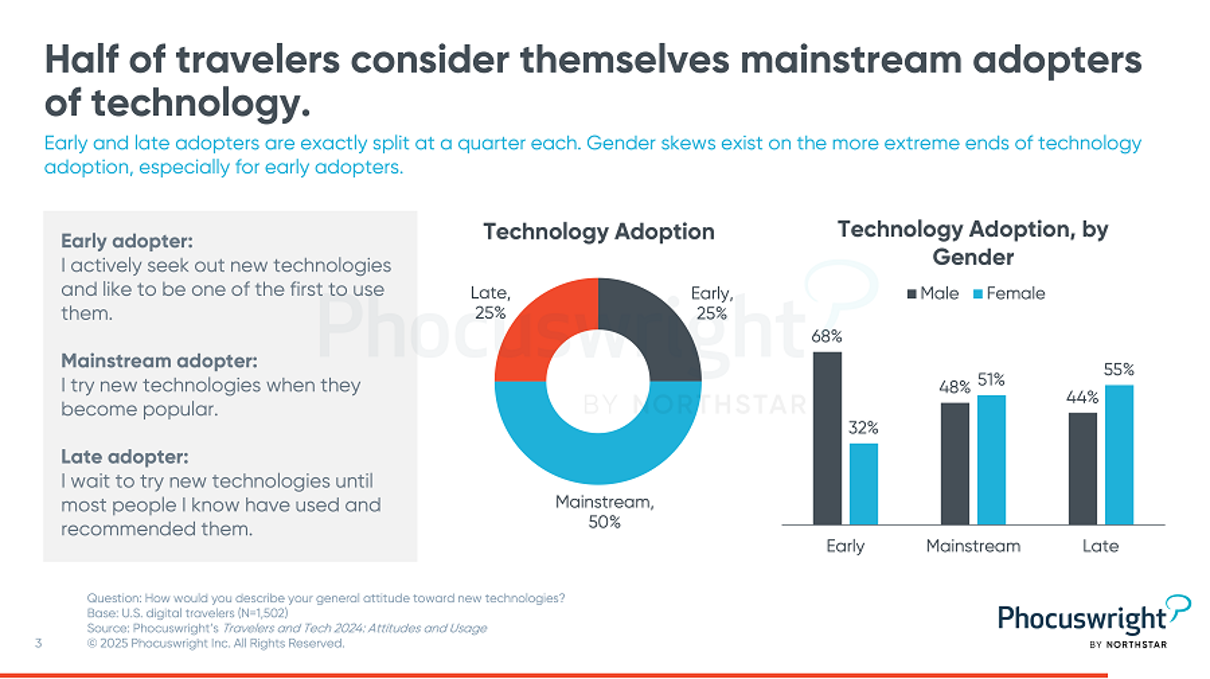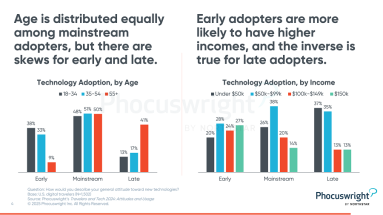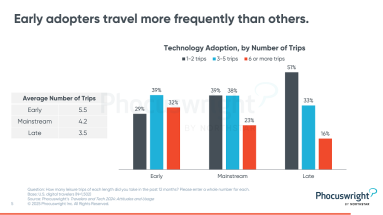Page content
Travelers’ Embrace of Technology Continues to Evolve
The use of technology in the trip-planning path is not one-size-fits-all; for most, there is variation with each trip. Travelers want to make sure they are finding the best information and prices for the trip they are planning at the moment. Thus, most travelers vary their approach to planning each trip online.
While travelers are largely happy with researching and booking key trip components online, there is plenty of room for streamlining the process. According to Phocuswright’s research report Travelers and Tech 2024: Attitudes and Usage, technology needs to help travelers save time and money while also adding to the travel experience.
And while travelers feel that technology does make travel easier, there is still room to improve efficiency. Generally, there is a preference for completing tasks like getting directions, booking transportation or checking in for flights/hotels digitally – specifically through apps rather than websites. Digital tools like facial recognition or self-service kiosks have yet to catch on for most travelers. The personal touch is still preferred when needing customer service or sitting down in a restaurant.
Data privacy and personalization continue to be a balancing act for travel companies who are leveraging new technologies to offer more seamless services. Travelers are only willing to share personal information when they are confident it will result in meaningful customization and efficiencies. Travelers are willing to give up relevant personal information in order to get better recommendations. This includes their travel preferences and related searches they’ve done. On the other hand, travel companies asking for access to information (such as social media usage) on travelers’ mobile devices is viewed as unnecessary.
Expectations from technology are only going to grow
There is a cohort of adults that started traveling when the only type of plane ticket available was on paper and issued by a travel agent. These travelers are delighted with the enhancements that technology has provided, because they remember a time when none of this technology existed.
Younger travelers who don’t know a world without the internet are beginning from a different baseline. They have higher expectations of technology and while they have stronger usage, they also express more frustrations. But do higher expectations translate to faster or earlier adoption?
Half of travelers consider themselves mainstream adopters of technology. Early and late adopters are exactly split at a quarter each. Gender skews exist on the more extreme ends of technology adoption, especially for early adopters.
Age is distributed equally among mainstream adopters, but there are skews for early and late. Early adopters are more likely to have higher incomes, and the inverse is true for late adopters.
An important aspect for travel companies to consider is that early adopters travel more frequently than others. While they represent a smaller portion of digital travelers, early adopters spend more than others on travel annually.
Ultimately, travelers want peace of mind that they found the best information, as efficiently as possible, for the trip they are planning at the time. Technology enhances the trip experience and isn’t viewed as scary or overwhelming. That said, travelers do have wishes for the role of tech in the future, particularly to help save money. Other efficiencies travelers would like to see include saving time and providing help with managing trip elements.
By: Phocuswright

.svg)



